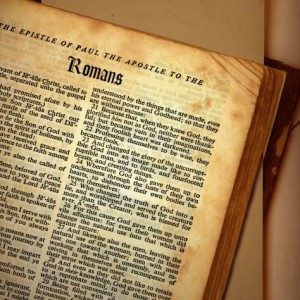 MILWAUKEE, Wisc. — A pastor and author who supports Kentucky clerk Kim Davis’ decision to disobey a court order rather than violate the law of God says that Davis has a duty to continue to interpose as a civil magistrate and refuse to issue marriage licenses to homosexuals—and the responsibility has nothing to do with personal religious liberty.
MILWAUKEE, Wisc. — A pastor and author who supports Kentucky clerk Kim Davis’ decision to disobey a court order rather than violate the law of God says that Davis has a duty to continue to interpose as a civil magistrate and refuse to issue marriage licenses to homosexuals—and the responsibility has nothing to do with personal religious liberty.
Matt Trewhella, pastor of Mercy Seat Christian Church in Milwaukee, Wisconsin, and author of “The Doctrine of the Lesser Magistrate” told Christian Network this week that obeying God rather than men is a biblical doctrine that is exemplified throughout the Scriptures.
“This has been the history of Christianity,” he said. “Christianity has always upheld the standard that when the state commands that which God forbids or forbids that which God commands, we are to obey God rather than men.”
“Daniel (a civil magistrate) chose to pray even thought he was told not to. The apostles chose to preach even though they were told not to. The early Christians refused to burn a piece of incense to [Nero] even though they were told to do so. Richard Wormbrandt (a Romanian pastor who was imprisoned for years and tortured) chose not to keep his mouth shut when Christ was being impugned,” Trewhella outlined.
“There’s no difference here with what Kim Davis has done,” he said. “You choose to either obey God or you choose to obey man when there’s a conflict of laws between the state and God’s law and word.”
He said that the biblical example of fidelity to Christ over man is also woven throughout history, and that God’s law was always considered the standard of legal jurisprudence up until recent times.
“For nearly 1500 years [following the resurrection of Christ], the moral law of God was the objective standard by which all men and all governments of men are judged,” Trewhella explained. “It was the standard to determine whether a law was just or unjust, moral or immoral, right or wrong. And any law made contrary to God’s law was considered now law at all, and was to be resisted.”
Various historical figures, including those who influenced early America, often referenced the law of God, he said.
“Whether you read Alfred the Great from the 9th century, Jonathan Salisbury from the 12th century or William Blackstone from the 18th century, they all pointed to God’s law as the higher law to which all men and all governments of men were accountable,” Trewhella explained. “William Blackstone was the most cited legal scholar by America’s founders. … He said that any laws that were made contrary to the law of God should not be suffered among us.”
“That was always the thinking of western man up until the time now where we’ve thrown the law of God under the bus,” he continued. “Now that the objective standard has been removed, it allows the state to make it up as they go. And as you can see, they just change the rule of law based on the lusts, passions and whims of mere men.”

While some say that the Scriptures require unlimited obedience to men, Trewhella said that it no such command is given to obey an order that violates the law of God.
“The authority that a civil magistrate has is delegated to them by God, therefore, they have a duty to govern according to his rule,” he explained. “And that’s why it says in Romans 13 that the civil magistrate is the ‘minister of God,’ or God’s minister, to reward those who do good and punish those who do evil.”
“When we look at other passages of Scripture, we see precisely what the Christian is to do when the civil magistrate wants to rename evil as good and good as evil—that is to obey God rather than men,” Trewhella continued, again pointing to biblical examples. “There are plenty of passages in regard to the Hebrew midwives, Daniel, the Hebrew children and even ["the prisoner of Christ Jesus”] Paul himself, who penned Romans 13 and 2 Corinthians 11.”
Therefore, Kim Davis did what was right, Trewhella said.
“She’s simply following what western man has understood for over 1,500 years now, and that’s divine law trumps human laws,” he stated.
And while some opine that Davis should simply resign and let someone else issue the licenses, Trewhella said that is not Davis’ duty before God.
“She is a magistrate. She is not a private individual,” he noted. “As a magistrate, she posses lawful authority, and so she has the duty in the sight of God when the higher authority makes court opinion contrary to the law and word of God to defy that, to interpose against it.”
Trewhella said that the matter is not about religious liberty and should not be treated as a personal opt-out but a scenario where a lesser magistrate must stand in the gap to hold back the judgment of God. He expressed disappointment over statements by Davis’ attorneys in regard to desired compromises, such as being willing to issue licences as long as her name is removed from the documents.
“We’re still allowing the evil to continue, and it totally nullifies the interposition of the lesser magistrate in abating the just judgment of God,” Trewehella lamented. “It’s extremely important for people to understand that the interposition of the lesser magistrate abates the just judgment of God, but with the path they’re taking in Kentucky, it will not.”
Become a Christian News Network Supporter...


